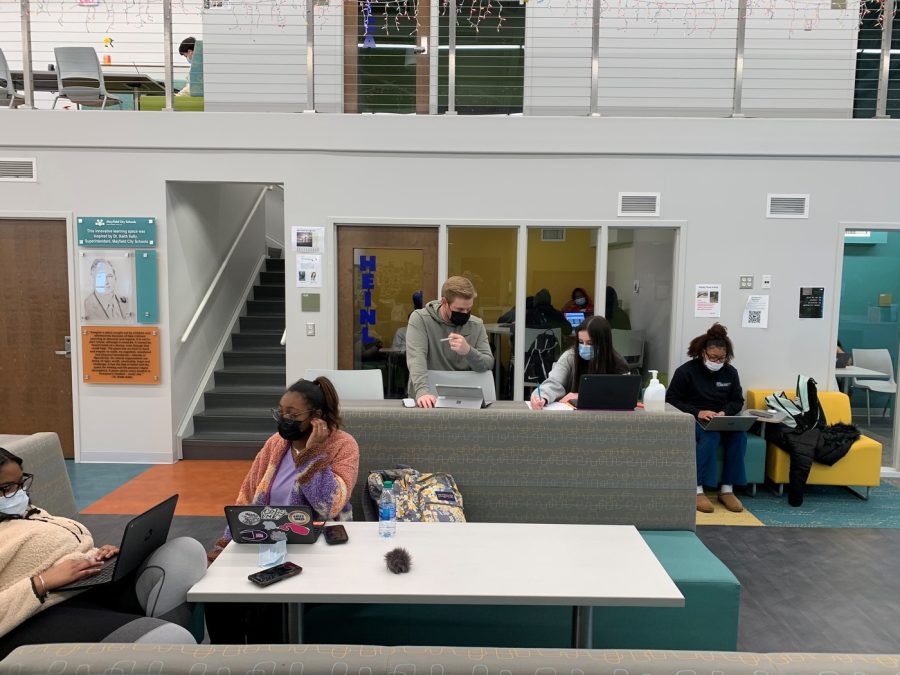Scheduling committee considers alternative schedules
Special education teacher Mike Pinto works in The Option space with his students. Next year’s 8-period bell schedule will still allow for alternative learning programs like The Option, self-paced, and cross-curricular programs.
February 2, 2022
With the recent announcement of the return to the 8-period schedule next school year, some are wondering which others the scheduling committee considered.
Jarrod Mulheman, the Assistant Principal for Curriculum & Instruction, leads the scheduling committee, which was formed in 2017. He said, “We wanted to try something different than the 8-period day, which had been in place since 1998.”
Before the announcement of the return to the 8-period schedule, the scheduling committee looked at many options for how it may look moving forward. “We did brainstorming, kind of like a design-thinking exercise,” he said.
There was a consensus among the committee that other options than what was in place should be investigated. There was a mixed review among the teachers. “Some wanted an 8-period day, some wanted a 90-minute block; some thought 90 minutes was too long, but 50 minutes was too short,” said Mulheman.
The schedule that the committee had the most interest in was the hybrid schedule, which is currently in use at Chardon High School. It combines both the 8-period schedule and the block schedule. Mulheman said, “That might look like a block on Monday, Tuesday, Wednesday, and Thursday, with an 8-period day on Friday.”
Another schedule that the committee investigated was the modular schedule, which is currently in use at Mentor High School. In this type of schedule, there are 20-minute “modules” throughout the day that allow for customization and flexibility in scheduling. Mulheman said, “We used this in the ‘90s, before switching to the 8-period day, which was in place from 1998 until 2020.”
In the future, the scheduling committee aims for the scheduling process to be more personalized to each student’s needs. Mulheman said, “What happened from our original discussion in 2017 was that we talked about learning differently; that’s where self-paced, cross-curricular, and [The] Option came in. Rather than changing the 8-period schedule for everyone, we wanted to provide as much choice and flexibility as possible. “
Some teachers, including English teacher Kerry Rutigliano, think their classes function better in block scheduling. She said, “I prefer the block because it allows for greater opportunities and for personalization to design instruction around the needs of students.”
Freshmen and sophomores have had no prior experience with the 8-period schedule, which the scheduling committee considered when making their decision. Mulheman said, “What I’m gathering from these interviews is they like the flexibility of having more time to do their homework. With the 8-period schedule, you’re going to have to have a plan and have to do a little work in each class each night.”
Rutigliano believes that students who have had no prior experience with the 8-period schedule will be able to adjust well. “So, [they need] to really focus on adjusting, planning, building habits, so that they do the best they can academically, as well as get sleep, and experience fun, and a strong social life,” said Rutigliano.
Next year, the school day will begin at 7:40am and end at 3:00pm, except for late-start Wednesdays which will begin for students at 8:45am. For more information, click on the bell schedule.























































